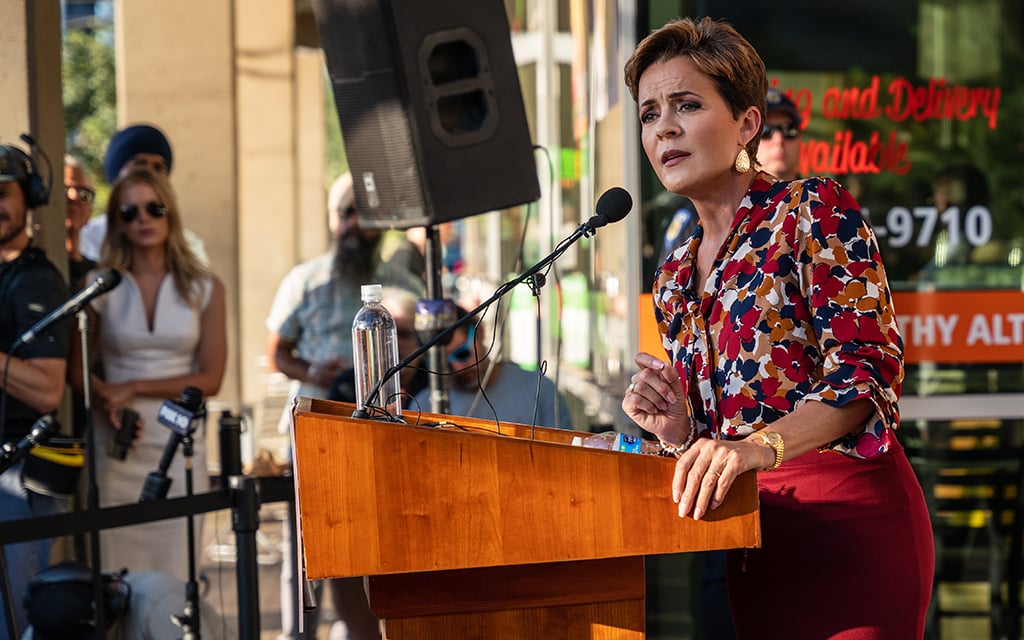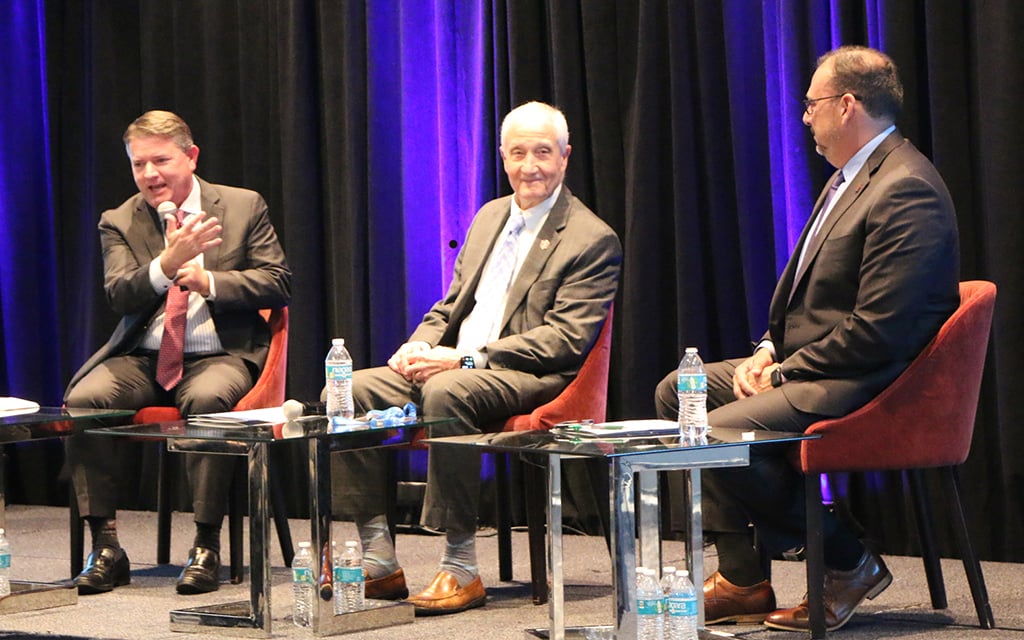
Then-gubernatorial nominee Kari Lake at a campaign event in 2022. Lake on Monday criticized the Supreme Court’s refusal to hear an appeal from her and 2022 GOP secretary of state nominee Mark Finchem, who were trying to block the use of electronic vote tabulating machines in Maricopa and Pima counties. (File photo by Jack Wu/Cronkite News)
PHOENIX – The U.S. Supreme Court on Monday turned down an appeal from Kari Lake and Mark Finchem, apparently ending their two-year bid to block the use of electronic voting tabulation in Maricopa and Pima counties.
Lake, the failed GOP nominee for governor in 2022 who is now running for U.S. Senate, and Finchem, the failed 2022 Republican nominee for secretary of state, had claimed in court filings the tabulating machines were susceptible to hacking.
But a district court judge rejected those claims as highly speculative, and the 9th U.S. Circuit Court of Appeals agreed. That set up their appeal to the Supreme Court, which declined without comment to hear the case.
Neither Finchem nor Lake responded to requests for comment Monday, but Lake criticized the order on social media.
“The Supreme Court of the United States did not believe that the issue of election integrity was worth the court’s time during another crucial presidential race,” Lake posted to X, formerly known as Twitter.
But election officials welcomed the order, saying “this decision by a conservative Supreme Court underscores deniers’ inability to produce a legitimate argument against our elections system.”
“It’s time to stop breathing oxygen into these dying narratives that inspire unhinged attacks on our democracy,” Arizona Secretary of State Adrian Fontes said in a prepared statement. “What I’m asking for is that we focus on the great work our election workers are doing to ensure safe, secure and fair elections.”
Lake and Finchem originally sued over their 2022 losses: Lake lost to Gov. Katie Hobbs by 17,117 votes and Finchem lost to Fontes by 120,208 votes. Their suit named Fontes and the boards of supervisors for Maricopa and Pima counties, as well as the individual supervisors.
The two claimed their elections were tainted by the tabulation machines, citing statements from what the courts called “purported experts” about alleged problems with voting machines in other states. But a federal district court rejected that complaint, which it said “relies on ‘a long chain of hypothetical contingencies’ that have never occurred in Arizona and ‘must take place for any harm to occur.'”
On appeal, Lake and Finchem dropped their attempt to reverse the 2022 elections and sought instead to prevent future use of the voting machines. But the 9th Circuit tossed out that claim, saying the two “simply have not plausibly alleged a ‘real and immediate threat of’ future injury.”
Tom Collins, the executive director of Arizona Citizens Clean Elections Commission, said the Supreme Court was right to reject the case. He hopes the order can begin to repair the damage brought to Arizonans’ confidence in elections, which he said is hurt by claims like those made in the lawsuit.
“No judge who has looked at this case has found anything validating this case,” Collins said. “Unless you’re going to expand your theories all the way up to the very top of the federal courts. … They have all agreed this case is not well pled.”
Fontes called the high court’s order just another instance of election deniers’ “inability to produce a legitimate argument” to support their claims. He referenced the historical effectiveness of Arizona’s elections that he says has “delivered diverse candidates.”
Collins rejected Lake’s claim that the court does not care about election integrity, saying it is proper for the justices to deny cases not based on fact.
“Thirteen judges of different parties and different backgrounds have looked at this case and said there isn’t anything there,” Collins said. “When lawyers bring cases that are not well researched in their factual basis, the ordinary saying is they get dismissed.”

